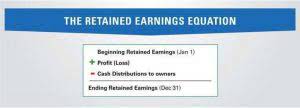
Many payroll software platforms have built-in notification tools that make it easy to keep on top of payroll to-dos. When the tax year concludes, employers must complete and file a Form W-2, Wage and Tax Statement that reports an employee’s compensation. That form goes to the Social Security Administration and the employee should also receive a copy from their employer so that they can accurately complete their tax returns.
Local Income Tax

If your business is a corporation, the personal responsibility is usually given to a top executive, who has the job of making sure payments and reports are sent on time. The frequency of filing these forms varies depending on your location and the size of your payroll. Different state and local government agencies have different payroll rules. Employers also have requirements to file reports with various state and local agencies. Employers can find links to state tax agencies through the American Payroll Association website.
Tax Breaks for Business Buildings
- You must fill out and file IRS Form 941 to report FICA tax and federal income tax that you’ve withheld from your employees’ wages.
- Other components in payroll processing are managing holiday, vacation, and sick pay according to the company’s policies and accurately paying employees for their paid time off.
- New Hampshire and Tennessee only charge income taxes on interest and dividend income, not on ordinary earnings from a job.
- For that reason, it may cost a business more than doing payroll manually or using payroll software.
- Withholdings and payroll deductions are considered liabilities until the money is transferred to the agencies to which they are due.
In that case, taxes for Wednesday, Thursday, or Friday paydays are due by the following Wednesday. Taxes for Monday, Tuesday, Saturday, or Sunday paydays are due by the following Friday. Here are the important deadlines and forms that you need to be aware of for each type of payroll tax. Note that if employers responsibilities for payroll do not include: a filing deadline falls on a holiday or weekend, you have until the next business day to file.

How to Make Sure You Meet Your Payroll Tax Responsibilities
- The best way to make sure that payroll taxes are withheld, accounted for, reported, and paid is to set up a system that works automatically.
- HR is also responsible for establishing company policies regarding benefits like health insurance, 401K plans, paid time off, etc.
- Since the U.S. government is divided into federal, state, and local jurisdictions, there are federal, state, and local payroll taxes.
- Ultimately, because payroll taxes consist of several individual taxes, there isn’t a single payroll tax rate.
- Even a very small business with a few employees can benefit from having someone else take care of payroll tax responsibilities.
- In most cases, you should not send any tax payment along with Form 941.
As a business with employees, you have certain important responsibilities relating to payroll taxes. Payroll is one of the most time-consuming accounting tasks—and you need the right tools to work efficiently. Automate the payroll process so you can save time and focus on growing your business. Payroll software like QuickBooks Payroll can help streamline your process and seamlessly track liabilities and expenses.
- No taxes, benefit contributions, or other deductions get withheld from compensation made to independent contractors.
- Since 2013, an additional Medicare tax of 0.9% has been applied to unmarried employees who file an individual tax return and whose Medicare wages exceed $200,000.
- The frequency of filing these forms varies depending on your location and the size of your payroll.
- You’ll also want to make sure you are aware of any updates that are made to federal or state law regarding payroll taxes or the payroll tax rates.
- However, you’re responsible for withholding it, when applicable.
- Employers can find links to state tax agencies through the American Payroll Association website.
If your FUTA tax liability is less than $500 in a year, however, you can include payment along with Form 940 instead of depositing the taxes on a quarterly basis. As a business grows, it may benefit from having a specialist on staff to manage payroll-related details and administrate payroll through the company’s chosen payroll software. It’s crucial that a company execute payroll correctly and on time. So, if the business doesn’t outsource its payroll management to a resource with that expertise, an in-house payroll specialist can offer peace of mind. The FSLA provides an exemption for employees who meet specific job duties and salary criteria.
When the taxpayer files their income tax return, they will either pay any remaining balance or receive a tax refund. Cloud-based payroll systems can help save businesses time when managing their payroll. Self-service payroll software solutions also cost less than using an accountant, bookkeeper, or other full-service solution. Most online software platforms are easy to use and offer many automated features that make calculating employee wages, salaries, paid time off, withholdings, and net pay efficient and accurate. They also streamline preparing and filing reports and managing the regulatory aspects of retained earnings balance sheet payroll.
Payroll Taxes and Employer Responsibilities

The IRS offers employers a few different options for withholding taxes on supplemental wages. You can treat them as regular wages or separately withhold a flat tax from them. The flat tax rate is 37% if an employee receives supplemental wages in excess of $1 million per year. The rate falls to 22% for supplemental wages of $1 million or less. Miscalculations could result in inaccurate tax payments, leading to late fees and other financial penalties. Also, failure to pay taxes could result in a business losing its status of good standing with the state.

Health Insurance and Retirement Plan Documentation
We’ll explain everything you need to know about Bookstime payroll taxes and include the latest rates and filing deadlines. Federal unemployment tax (FUTA) is paid by employers — 6 percent on the first $7,000 that each employee earns. State unemployment tax follows suit, except in a few states employees must also contribute. Note that employers who pay their state unemployment taxes in full and on-time may get up to a 5.4% credit on their FUTA tax (except in credit reduction states) when filing their Form 940. Payroll taxes are the taxes paid on employees’ wages and salaries to fund public programs.